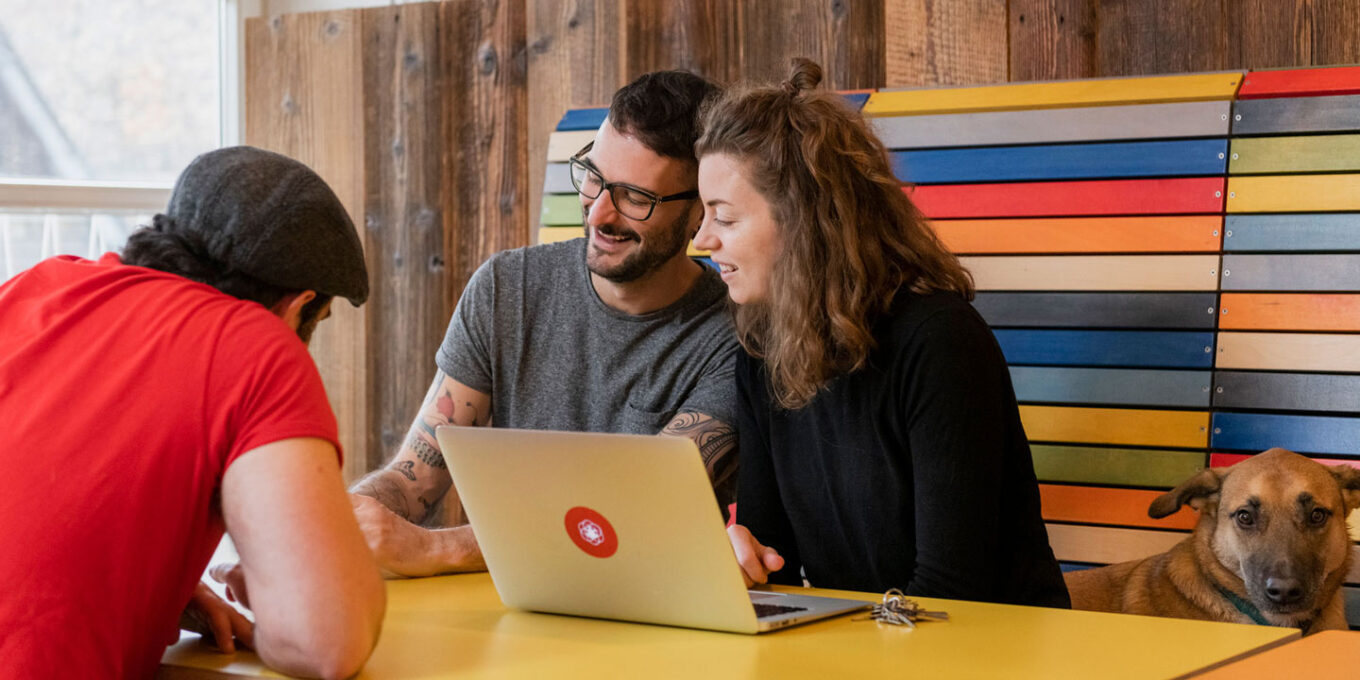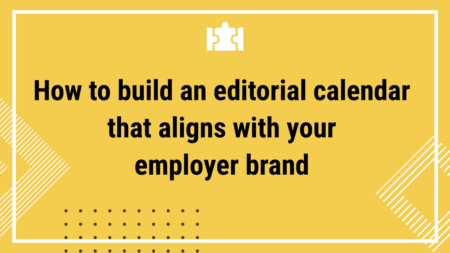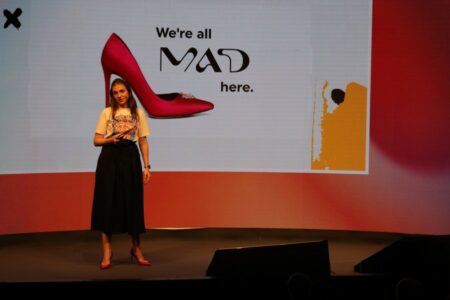What’s happening with employer branding? Does it have a future in the context of COVID-19? The team at Employer Branding Tech is on a journey to finding out how other companies are adapting their strategies. Contrary to popular belief, hiring top talent is still in high demand across the German market. The strongest companies out there are alive and thriving. They’re smart because they know that the key to success in business is to never stop investing in people. Let us have a closer look at the way Clue does employer branding!
EB: Are you still hiring? And if so, what has changed in the interview process?
Adriana: Yes, we are still hiring, but only for the critical roles at the moment. The decision to put on hold some of the roles has been heavily influenced by the low inbounds and by heavy deadlines internally. No drastic changes in the interview process – we’ve always hired remote/hangouts so that was not a difficulty for us. The only disadvantage was for candidates who were already based in Berlin and missed the chance to meet the team face to face; but, they’ve still joined the company.

EB: How are you managing the onboarding process from afar? Doesn’t it feel a bit unnatural?
Adriana: The onboarding process hasn’t really been an issue for us either, but pre-onboarding has been a bit of a challenge or better said, something new.
This is how the process unfolds now:
- We’ve prepared all equipment and delivered it to them
- All onboarding sessions are kept remotely
- We’ve made 100% sure the people’s team and their manager will be there for them for any kind of questions
- We’re inviting all new employees to company meetings, ‘events’, trainings, etc.
- We’re doing everything we can to keep them as engaged as possible.
EB: What exactly do you do to keep people engaged while they work from home? Can you give one specific example of something that has worked?
Adriana: We’ve kept all company meetings in place. BUT, we’ve made sure to have the right tools to communicate/engage as a large group of people. Also, we’ve tried to solve a major pain point: a poor internet connection at home. As a consequence, we’ve helped out employees to fix that issue. To keep things interesting, we’ve introduced virtual coffee time & lunch breaks, as well as additional remote activities to make sure everyone stays connected.
Furthermore, we offered more (optional) training on how to deal with working remote, mindfulness, yoga sessions, etc. introduced a new tool for feedback (earlier than supposed to in order to make sure communication between managers and employees is continuous).
To preserve retention, we made sure to occasionally check on people who are on their own, as it might be a bit more difficult to go through quarantine time on your own.
Bottom line is, our team is extremely satisfied and we’ve received great feedback from them so far.
EB: We keep hearing that “(work) life after COVID-19” will never be the same again. How would you argue this statement suits your organization? (For some companies, for instance, some of the trends and MOs discovered during the time of pandemics are likely to become the norm).
Adriana: I don’t have an answer to this question at the moment, but one thing is for sure: things will not be the same again – with positive and negative points to keep in mind.
EB: As a people person, what is your personal prediction? Seeing that so many companies have implemented working from home as a means of keeping the organization alive, do you think this will determine a massive shift in how companies perceive work? Are we maybe learning to look at “remote work” differently?
Adriana: This pandemic has been a lesson learned for both companies and individuals, in my opinion. Clue has always offered remote work options for its employees, but indeed, not the entire company at once. We have huge respect for the personal way of working and the work-life balance of our people.
From what I hear and see, a lot of individuals become very comfy working from home since they realize they can achieve more on their personal life too: spending time with family, eat healthier, focus on having a healthy body, more sports, etc. — we learn to be more productive and save more time. And, I think this might be an issue for some of us when we will need to go back to ’normal’.
EB: We keep hearing from our clients that employee engagement scores have plummeted, not as much due to working from home, as to low project allocation among teams. How does your organization make sure people in similar contexts don’t get disengaged?
Adriana: I strongly believe it hasn’t been the case at Clue (so far). We have multiple projects ongoing and all our teams are currently engaged. We’ve definitely experienced a low engagement in the 3rd and 4th week of the remote working process from some of our colleagues (all back on track now), but that is completely normal due to the current situation we’re exposed to. How do we make sure people are engaged? Well, we give them the space to be able to process where they stand as an individual in this world. All of us require space to process the current flow of information and uncertainty.
EB: In the end, can you give us 3 concrete measures you’ve taken in order to maintain company culture alive and thriving?
Adriana: Sure. We’ve taken the following measures:
- We gave people the space to process what is happening with their current lifestyle.
- We made sure our team stayed connected at all times and offered them all our support.
- We kept management updates coming in on a weekly basis to ensure our employees that things are moving as planned and there is no need to worry for the time being.
About Clue
Clue is a menstrual health app developed by the Berlin-based technology company BioWink GmbH. In more than 190 countries, more than 12 million active users rely on Clue to help understand their bodies better and keep their data safe and private.
Clue’s mission is for women and people with cycles to make good choices for themselves, and live full lives not in spite of their biology, but in tune with it. Clue was founded in 2012 by a Danish female entrepreneur, Ida Tin, who is convinced that technology will profoundly change the future of family planning.
All images in this article are taken from the Clue Careers page.









